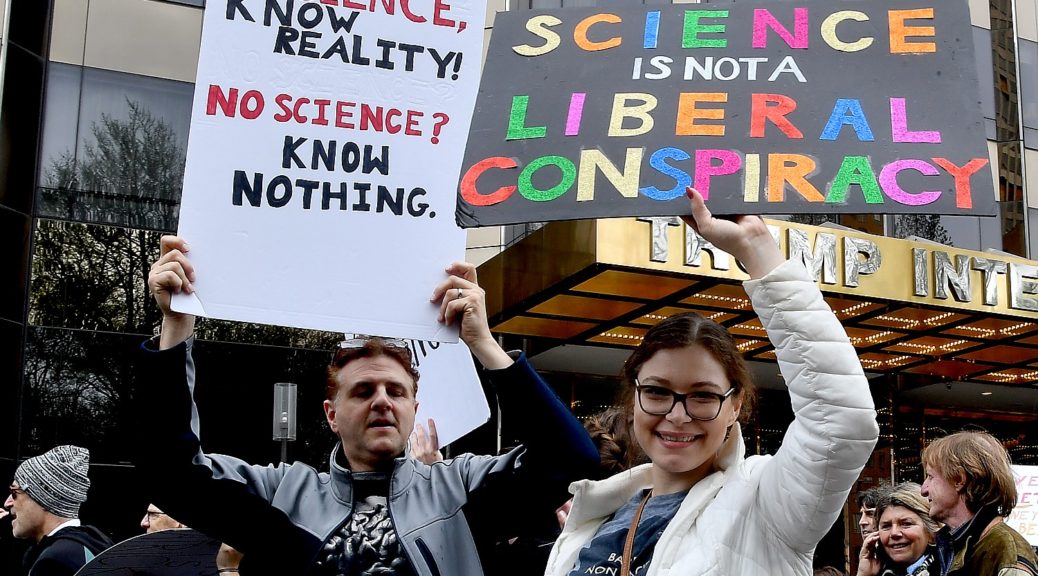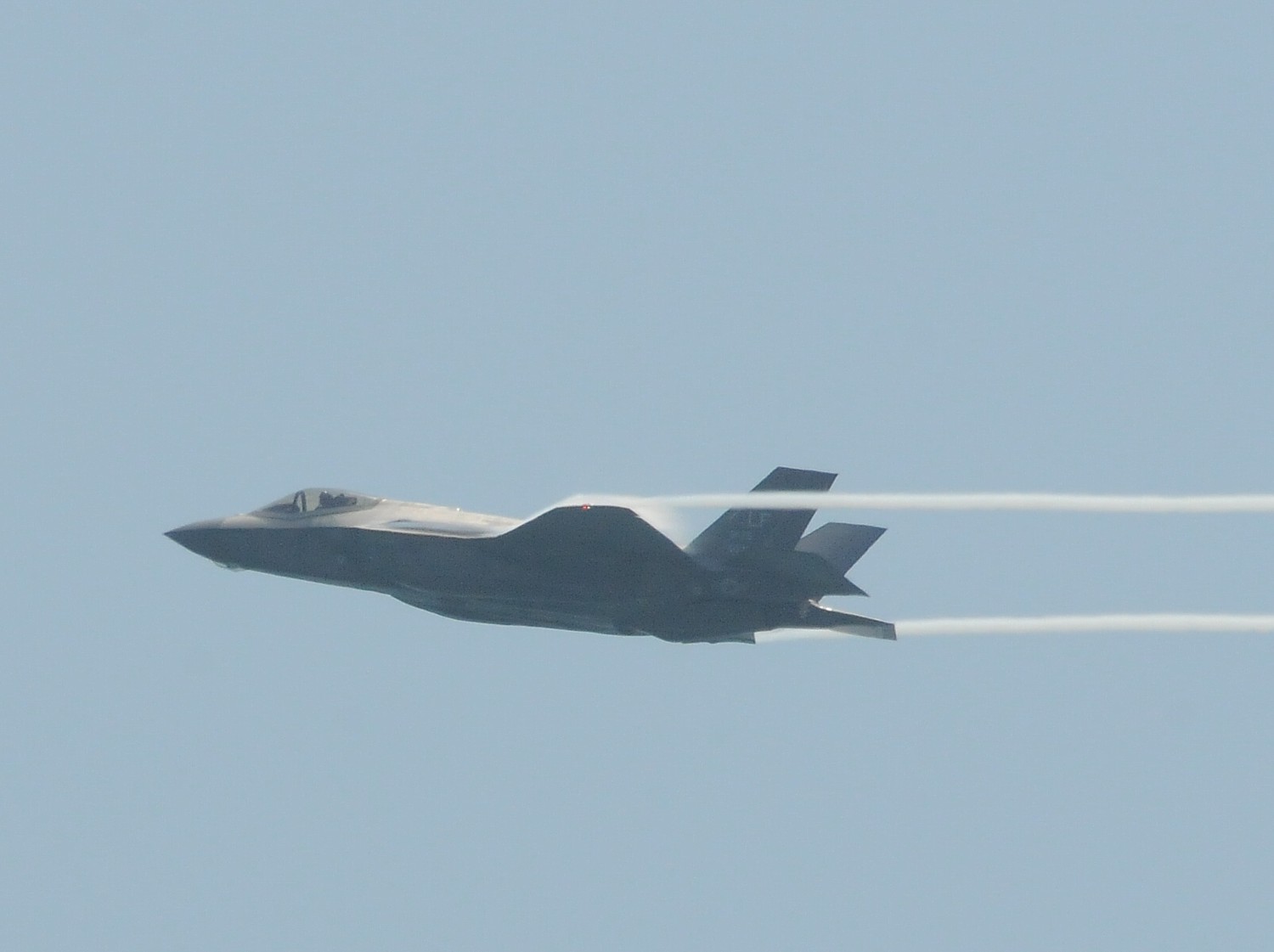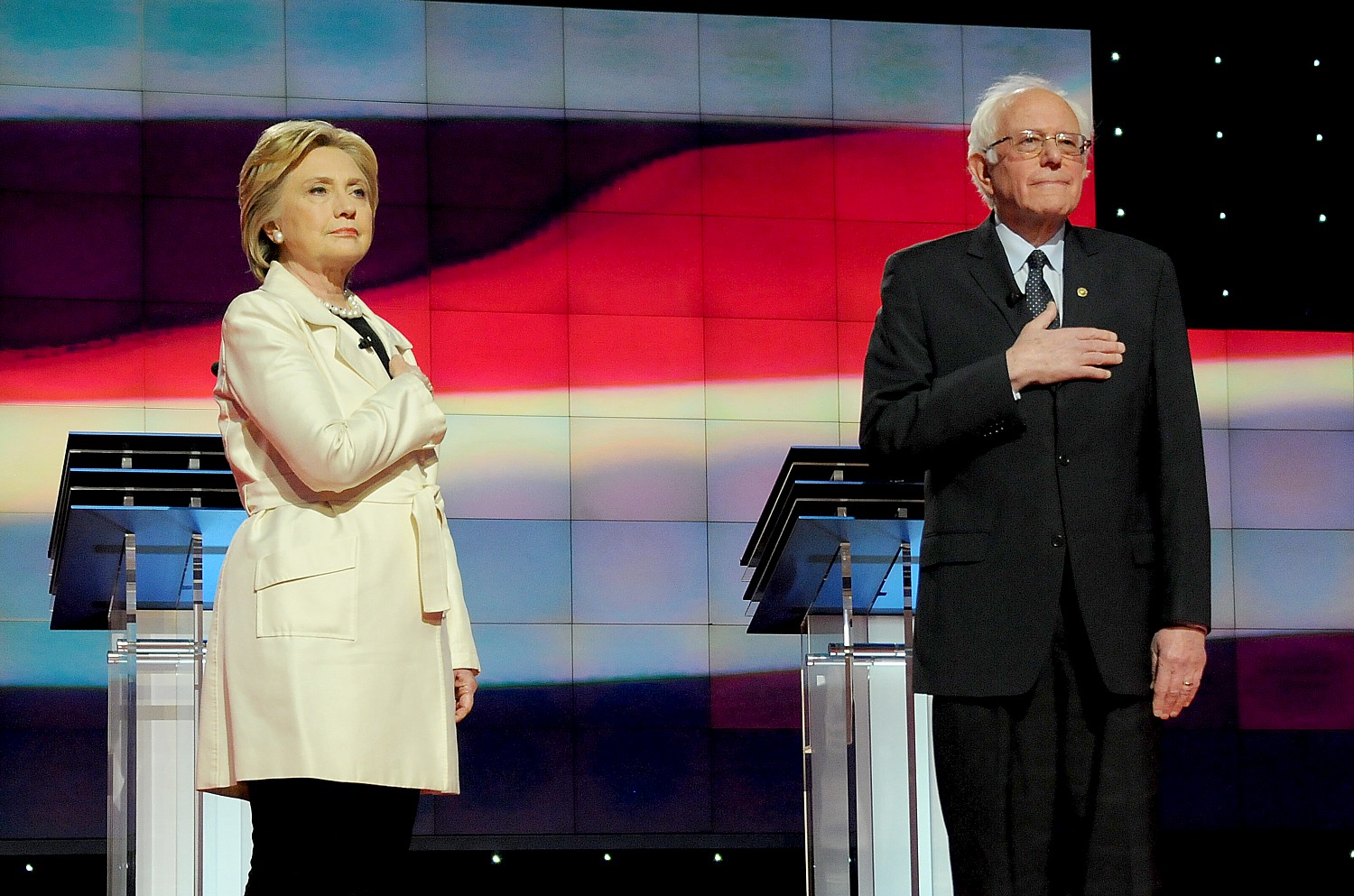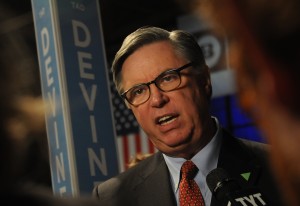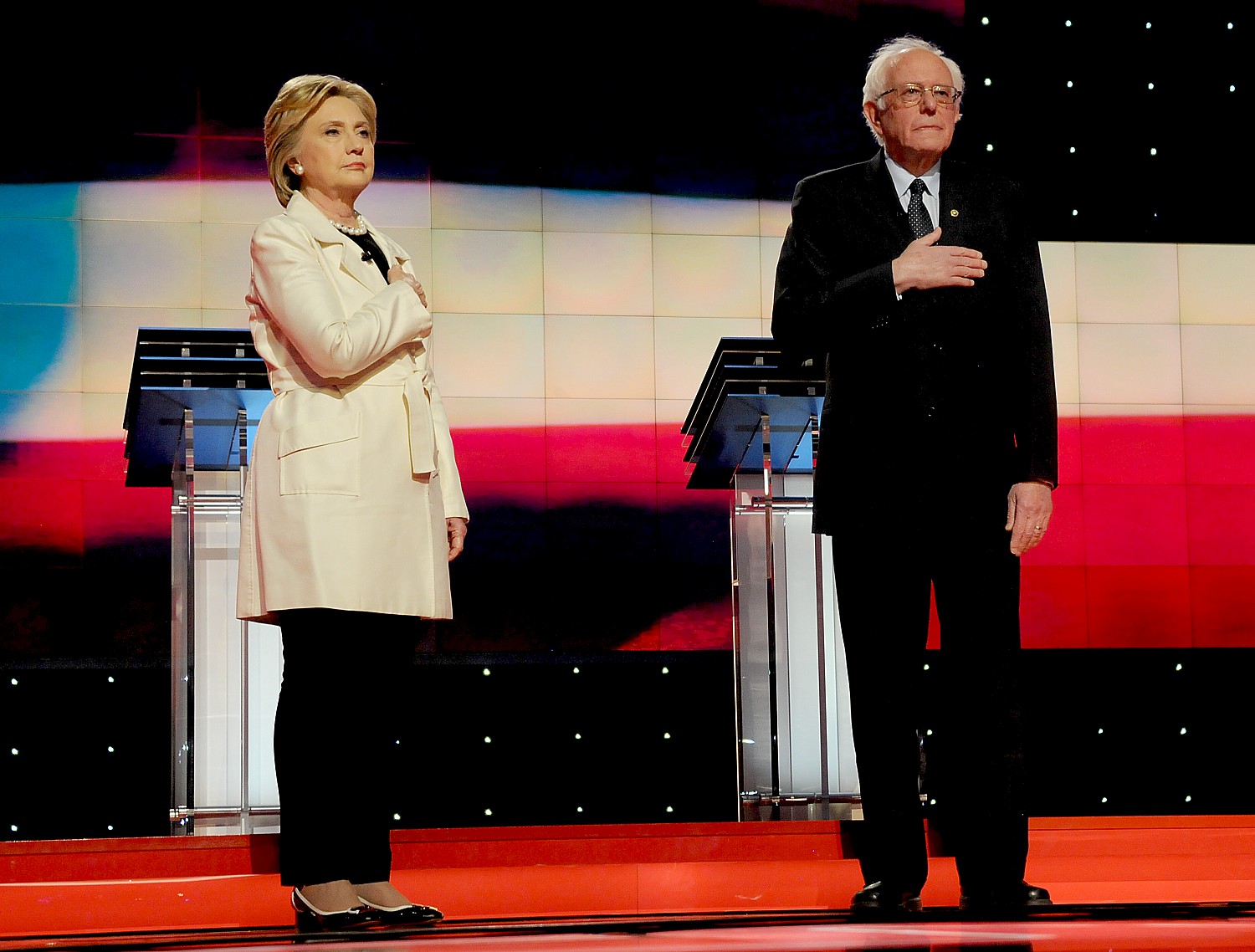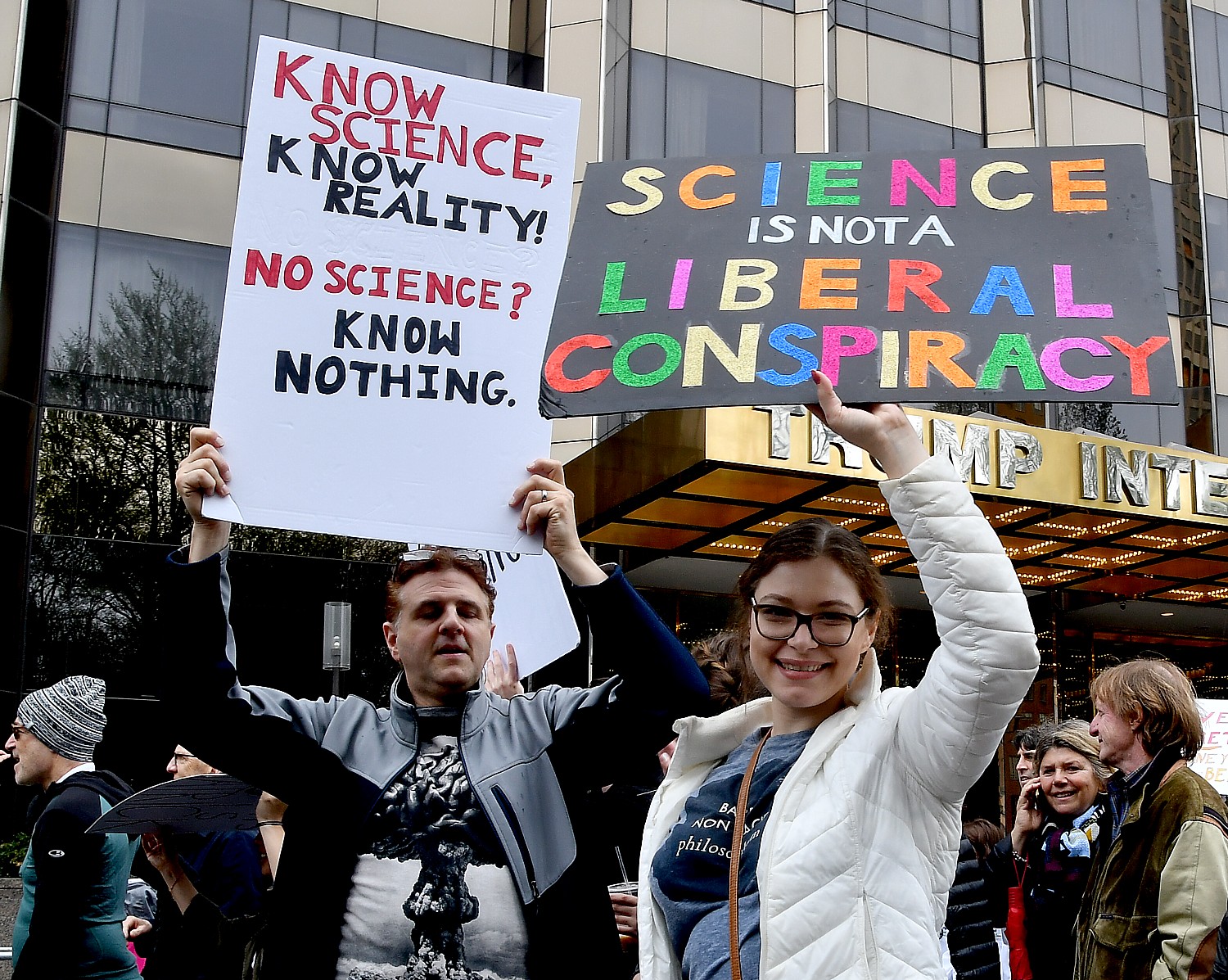
Only Donald Tweeter Trump could reply to a remark about how the International Space Station is “by far, the best example of international cooperation and what we can do when we work together in the history of humanity” with a statement about the “tremendous military application in space. We’re rebuilding our military like never before.”
Following the astronauts’ inspiration message to the thousands of students participating in the video chat with Peggy Whitson, the commander on the international space station, who just hit a milestone as the American with the most time in space, and a discussion of all the scientific and medical achievements gained from the space station, Trump said:
“So well said. And I have to say, there’s tremendous military application in space. We’re rebuilding our military like never before. We’re ordering equipment, and we’re going to have the strongest military that we’ve ever had, the strongest military that the world has ever seen, and there’s been no time where we need it more. And I’m sure that every student watching wants to know, what is next for Americans in space.”
Then, after being told that a Mars mission is planned for the 2030s, Trump, again showing how clueless and uncaring he is about actual facts, says it would take place during his first term, or “at worst” his second term (apparently he intends to pull an Erdogan).
Here is the White House transcript which speaks volumes about the so-called Commander-in-Chief – Karen Rubin, News & Photo Features
10:00 A.M. EDT
NASA: White House, this is Mission Control, Houston. Please call Station for a voice check.
THE PRESIDENT: Do you hear me?
CMDR. WHITSON: Yes, sir. We have you loud and clear.
THE PRESIDENT: Well, that’s what we like — great American equipment that works. And this isn’t easy. (Laughter.)
I want to say it’s very exciting to be here today — very, very exciting — and to speak to you live with three brave American astronauts. These are our finest. These are great, great Americans, great people. Two join us from orbit aboard the International Space Station: Commander Peggy Whitson and Colonel Jack Fischer. And Peggy Whitson has been setting records, and we’re going to talk about that very soon.
I’m here in the Oval Office, along with my daughter Ivanka and astronaut Kate Rubins, who recently returned from space and from the Space Station. Together, we are being joined by students all across America, thousands and thousands of students who are learning — they’re learning about space, learning about a lot of other things — and they’re watching this conversation from the classroom. And, all over, we have astronauts and we have everybody, who are flying right now, 17,000 miles per hour. That’s about as fast as I’ve ever heard. I wouldn’t want to be flying 17,000 miles an hour. But that’s what you do.
Peggy, Jack, and Kate, I know that America’s students are thrilled to hear from you. But first, I want to say that this is a very special day in the glorious history of American spaceflight. Today, Commander Whitson, you have broken the record for the most total time spent in space by an American astronaut — 534 days and counting. That’s an incredible record to break. And on behalf of our nation and, frankly, on behalf of the world, I’d like to congratulate you. That is really something. And I’d like to know, how does it feel to have broken such a big and important record?
CMDR. WHITSON: Well, it’s actually a huge honor to break a record like this, but it’s an honor for me basically to be representing all the folks at NASA who make this spaceflight possible and who make me setting this record feasible. And so it’s a very exciting time to be at NASA. We are all very much looking forward, as directed by your new NASA bill — we’re excited about the missions to Mars in the 2030s. And so we actually, physically, have hardware on the ground that’s being built for the SLS rocket that’s going to take us there. And, of course, the hardware being built now is going to be for the test flights that will eventually get us there.
But it’s a very exciting time, and I’m so proud of the team.
THE PRESIDENT: Great. And what are we learning from having you spending your time up there? I know so much research is done; I’m getting a glimpse of some of it right here in the Oval Office. What are we learning by being in space?
CMDR. WHITSON: Well, I think probably the International Space Station is providing a key bridge from us living on Earth to going somewhere into deep space. So on those Mars missions, we need to better understand how microgravity is really affecting our body, and we need to understand it in great detail. So, many of the studies are looking at the human body. We’re also looking at things that involve operations of a space vehicles on these long-duration missions and the technological advancements that will be required.
For instance, on a multiyear Mars mission, we’re going to need to be able to close the life support system, and that means we, right now, for instance, are taking solar power that we collect, and using it to break apart water into oxygen and hydrogen. The oxygen, we breathe, of course. We use the hydrogen, combine it back with the CO2 that we take out of the air, and make more water. But water is such a precious resource up here that we also are cleaning up our urine and making it drinkable. And it’s really not as bad as it sounds.
THE PRESIDENT: Well, that’s good. I’m glad to hear that. (Laughter.) Better you than me. I will say, Colonel Fischer, you just arrived, and how was your trip? Complicated? Easy? How did it go?
COL. FISCHER: Oh, sir, it was awesome. It made even my beloved F-22 feel a little bit underpowered. I launched in a Russian vehicle with my Russian friend, Fyodor Yurchikhin, from Kazakhstan. Got the immediate perspective change as we got to orbit, and I saw that frail, thin blue line of life around the Earth. Six hours later, we’re docked at the station. The next day, I install an experiment in the Japanese module that’s going to be looking at new drugs and how we can make those drugs for muscular dystrophy, Alzheimer’s, multi-drug-resistant bacteria — all sorts of things. A couple hours later, I watched our crewmate, Thomas Pesquet, a Frenchman, drive a Canadian robotic arm to capture a spaceship from Virginia, carrying 3.5 tons of cargo and science that’s going to keep us busy for the next few months, and dock that to the station.
Sir, it’s amazing. Oh, and then, you know, now I’m talking to the President of the United States while hanging from a wall. It’s amazing. The International Space Station is, by far, the best example of international cooperation and what we can do when we work together in the history of humanity. And I am so proud to be a part of it. And it’s just cool. (Laughter.) Like, yesterday, I had — well, there you go — there’s our resident space ninja doing the gravity demonstration. And yesterday morning, I had my coffee in floaty ball form, and, sir, it was delicious. So, it’s awesome.
THE PRESIDENT: Tell me, Mars — what do you see a timing for actually sending humans to Mars? Is there a schedule? And when would you see that happening?
CMDR. WHITSON: Well, I think as your bill directed, it will be approximately in the 2030s. As I mentioned, we actually are building hardware to test the new heavy launch vehicle, and this vehicle will take us further than we’ve ever been away from this planet. Unfortunately, spaceflight takes a lot of time and money, so getting there will require some international cooperation to get it to be a planet-wide approach in order to make it successful, just because it is a very expensive endeavor. But it so worthwhile doing.
THE PRESIDENT: Well, we want to try and do it during my first term or, at worst, during my second term. So we’ll have to speed that up a little bit, okay?
CMDR. WHITSON: (Laughter.) We’ll do our best.
THE PRESIDENT: Oh, you will. And I have great respect for you folks. It’s amazing what you do. And I just want to introduce another great one. Kate Rubins is with us today, and she has been so impressive with research and so many other things having to do with NASA. And, Kate, I understand you’re the first person to sequence DNA in space. Can you tell us about that?
RUBINS: Yeah. So that was actually just this last summer, and it’s a real example of what we can do with technology and innovation. We’ve got a sequencer down to the size of your cellphone, and we were actually able to fly that onboard the space station and sequence DNA. It’s not just the technology demonstration, but we can actually use that to do things like detect microbes on the space station, look at astronaut health. We can easily use that in Earth-based settings, too, to look for disease outbreaks and to do rural healthcare as well.
TRUMP: That’s fantastic. That is really great. I saw some of the work, and it’s incredible. You know, I’ve been dealing with politicians so much, I’m so much more impressed with these people. You have no idea.
Now, speaking of another impressive person — Ivanka, you’ve been very much interested in this program. Tell us something about it.
MS. TRUMP: Hi, Dr. Whitson. First of all, congratulations on your incredible milestone today. You may know that my father recently signed the Inspire Women Act to encourage female participation in STEM fields across all aerospace areas, and really with a focus on NASA. So encouraging women and girls to pursue STEM careers is a major priority for this administration.
And today we are sitting with an amazing example of that — Dr. Rubins, and you, Dr. Whitson. So I would love to hear from you, what was the impetus for you to get involved in the sciences?
RUBINS: Yeah, so when I around fifteen, I actually went to a conference, and that was very inspiring for me. It was sort of the beginning of recombinant DNA and understanding biology. And so just that exposure to scientists and the kinds of things that you can do with science and technology innovation.
MS. TRUMP: Amazing. Dr. Whitson?
CMDR. WHITSON: For me, it was actually the Apollo program was my inspiration, and that was when it became a dream to become an astronaut. But I don’t really think it became a goal until I graduated from high school, when the first female astronauts were selected. And seeing those role models, and with the encouragement of my parents and various mentors in college and graduate school, and when I started working at Rice, that’s what made it possible, I think, to become an astronaut. And it took me a lot longer to become an astronaut than I ever really wanted it to take, but I do think I’m better at my job because of the journey.
MS. TRUMP: You’re an incredible inspiration to us all. So I would also like to ask you one more question. I’m incredibly curious, as I’m sure all the students across the country are, to know what a day in the life in space is like. Could you share what a typical day looks like, what the challenges are, just any special moments?
CMDR. WHITSON: Well, a typical day, we wake up and look at the messages from the ground, because we have a huge ground team that’s working overnight to prepare changes or the details of the tests that we’re going to be performing over the course of the day. So first thing I do is check out that, see what’s changed.
But on any given day, it can be so dramatically different. On one day, we might be focusing on science. On another day, we might be repairing the carbon dioxide removal system. On another day, soon Jack and I are going to do a spacewalk. We talked about, last Saturday, we did robotics operations. I love the diversity of the different activities that we do. Plus, you know, we have over 200 investigations ongoing onboard the space station, and I just think that’s a phenomenal part of the day.
Of course, there’s also just the living and, onboard the space station, it’s such a unique and novel environment. Nothing that we’re used to on the ground. And it’s so special to just be in zero gravity. So Jack is the new guy here, and I think he can probably give you a better perspective on what that’s like.
COL. FISCHER: Well, you know, everything here — my dad always said that if you love what you do, you never work a day in your life. And we work really hard up here, but it’s not really work, it’s just fun. It’s like playing fort almost, only you’re changing the world while you do it.
And then on the off time, the other morning I was working out, and on our machine that we work out on, right below it is the Cupola window. And so when you’re on the device where you do crunches, every time you come up, you see out the window. And it’s awesome because you kind of go, crunch, “Oh, my gosh, that’s beautiful! I got to do that again.” Crunch, “Oh my gosh, that’s beautiful.” It’s awesome. Everything we do here is fun, and it feels so great to know that we’re making a difference on the ground and for the future of humanity as well. So it’s an incredible, incredible job.
THE PRESIDENT: You’re making a great difference, I have to say. And this is a very exciting time for our country, and you see what’s happening with our country in terms of jobs, in terms of business, and there’s such excitement and such enthusiasm. Many American entrepreneurs are racing into space. I have many friends that are so excited about space. They want to get involved in space from the standpoint of entrepreneurship and business.
Tell us about the opportunities that could exist for the next generation of scientists and engineers. Is that something that you think a student — because you have so many students, hundreds of thousands watching — is that something that you think that students should be focusing, or should they be thinking about other subjects? What do you think are the opportunities for young students wanting to be involved in space?

COL. FISCHER: Sir, absolutely. I think that this is probably the most exciting in space exploration, certainly in my lifetime. We are about to just have an explosion of activity. There is so much involvement on the space station with commercial industries and commercial partners. We have an entire program to manage the science. NASA has done a wonderful job of seeding a new industry with the Commercial Crew Program and the Commercial Cargo Program so that we can build the infrastructure we need for the future exploration.
One thing I love about American entrepreneurs is, once you get them going, you better stand out of their way because they’re going to start chucking. And we’re about to that point. NASA is taking on that expensive, hard, complex task of going further and deeper into space with the wonderful new rocket, Space Launch System and Orion. And then, as soon as we break open that door, this incredible infrastructure that we’ve been building is going to be right there to pick up the baton and continue into the stars.
I would say to all the students that are watching, the time to get excited is now. If you aren’t studying science and math, you might want to think about that because our future in the stars starts now, and you can be a part of that if, like Dr. Whitson, you can find that passion and work really hard. And we’re going to find a permanent foothold in the stars for humanity if you do that.
THE PRESIDENT: Well, thank you. So well said. And I have to say, there’s tremendous military application in space. We’re rebuilding our military like never before. We’re ordering equipment, and we’re going to have the strongest military that we’ve ever had, the strongest military that the world has ever seen, and there’s been no time where we need it more. And I’m sure that every student watching wants to know, what is next for Americans in space.
I’m very proud that I just signed a bill committing NASA to the aim of sending America astronauts to Mars. So we’ll do that. I think we’ll do it a lot sooner than we’re even thinking. So which one of you is ready to go to Mars? Are you ready? And I think you’re ready. I know you’re ready, right? We just discussed that. She’d like to go to Mars very quickly. Who’s ready to go to Mars up there?
CMDR. WHITSON: We are absolutely ready to go to Mars. It’s going to be a fantastic journey getting there, and very exciting times, and all of us would be happy to go. But I want all the young people out there to recognize that the real steps are going to be taken in a few years. And so by studying math, science, engineering, any kind of technology, you’re going to have a part in that, and that will be very exciting.
THE PRESIDENT: I just want to thank you very much. And, Dr. Whitson, I just — congratulations. Amazing. What an amazing thing that you’ve done. Everybody here — I know you’re family — but everybody here is incredibly proud of the record you just broke. I hope that every young American watching today finds, in your example, a reason to love space and think about space because many great things are going to come out, tremendous discoveries in medicine and so many other fields.
So thank you very much. I want to say God bless you, God bless America. We are very, very proud of you, and very proud of your bravery. Thank you very much.
END 10:19 A.M. EDT

